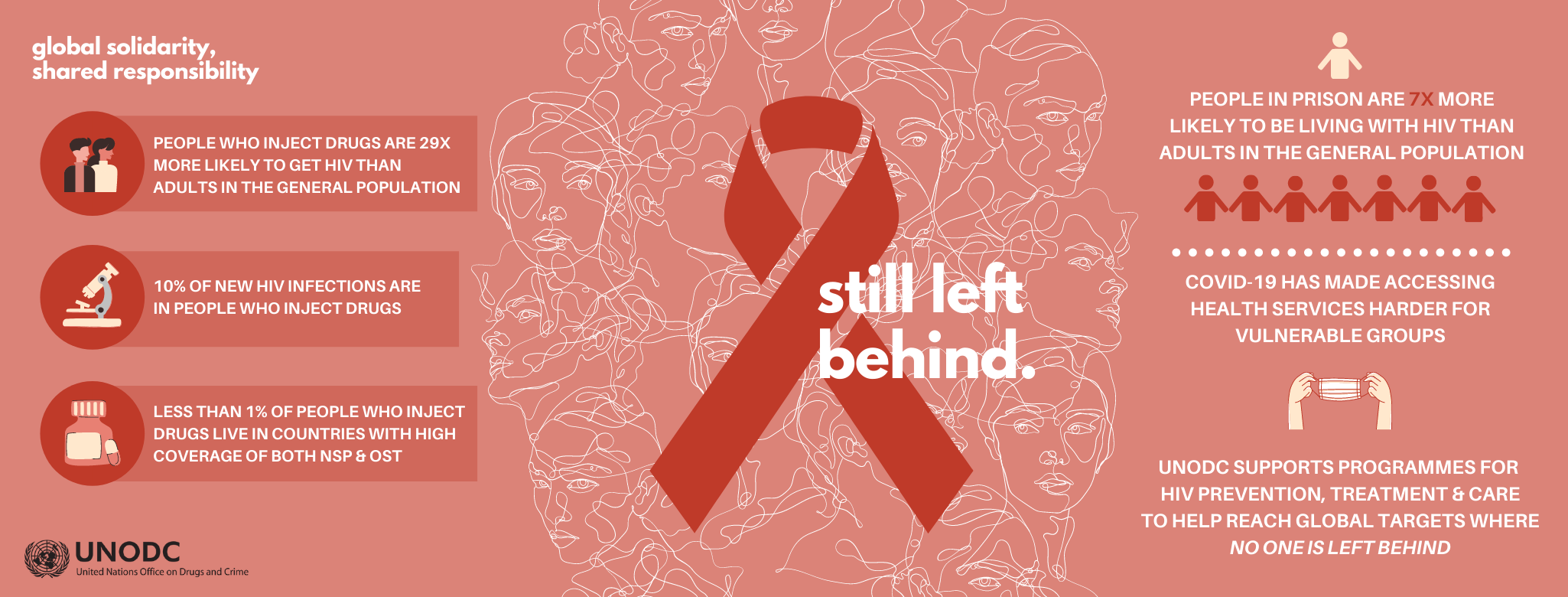
Vienna (Austria), 1 December 2020 — On World AIDS Day, we stand in solidarity with the 38 million people living with HIV worldwide and we remember the millions who lost their lives to AIDS.
We also focus on common solutions which will put us back on track to achieve a key promise of the Sustainable Development Goals: to end AIDS as a public health threat by 2030.
A proud co-sponsor of the Joint United Nations Programme on HIV/AIDS (UNAIDS), UNODC works with partners in 38 countries in Africa, Asia, Eastern Europe and Latin America to support health for all by promoting evidence-based, human rights-centred, and gender-responsive HIV prevention, treatment and care services for people who use drugs and for people in prison.
These groups continue to be disproportionately affected by HIV. In 2019, 62% of all new infections were among key populations including people who use drugs and people in prisons, who experience discrimination and stigma limiting their access to HIV prevention, treatment and care.
As COVID-19 puts health systems worldwide under additional strain, it is even harder for those who need HIV services to access them.
To ensure the continuity and sustainability of HIV services during the COVID crisis, UNODC, in collaboration with WHO, UNAIDS and civil society, has developed guidance and put in place capacity building initiatives for policymakers, health, and criminal justice practitioners, prison authorities and civil society organizations. The Office has also initiated a grants programme to provide funding for civil society organizations active in this area.
We can only reach our target of ending AIDS if we put people at the centre of our efforts, and leave no one behind.
This World AIDS Day, let us come together in global solidarity and with shared responsibility to strengthen our AIDS response, end discrimination and ensure that human rights guide our public health solutions.
